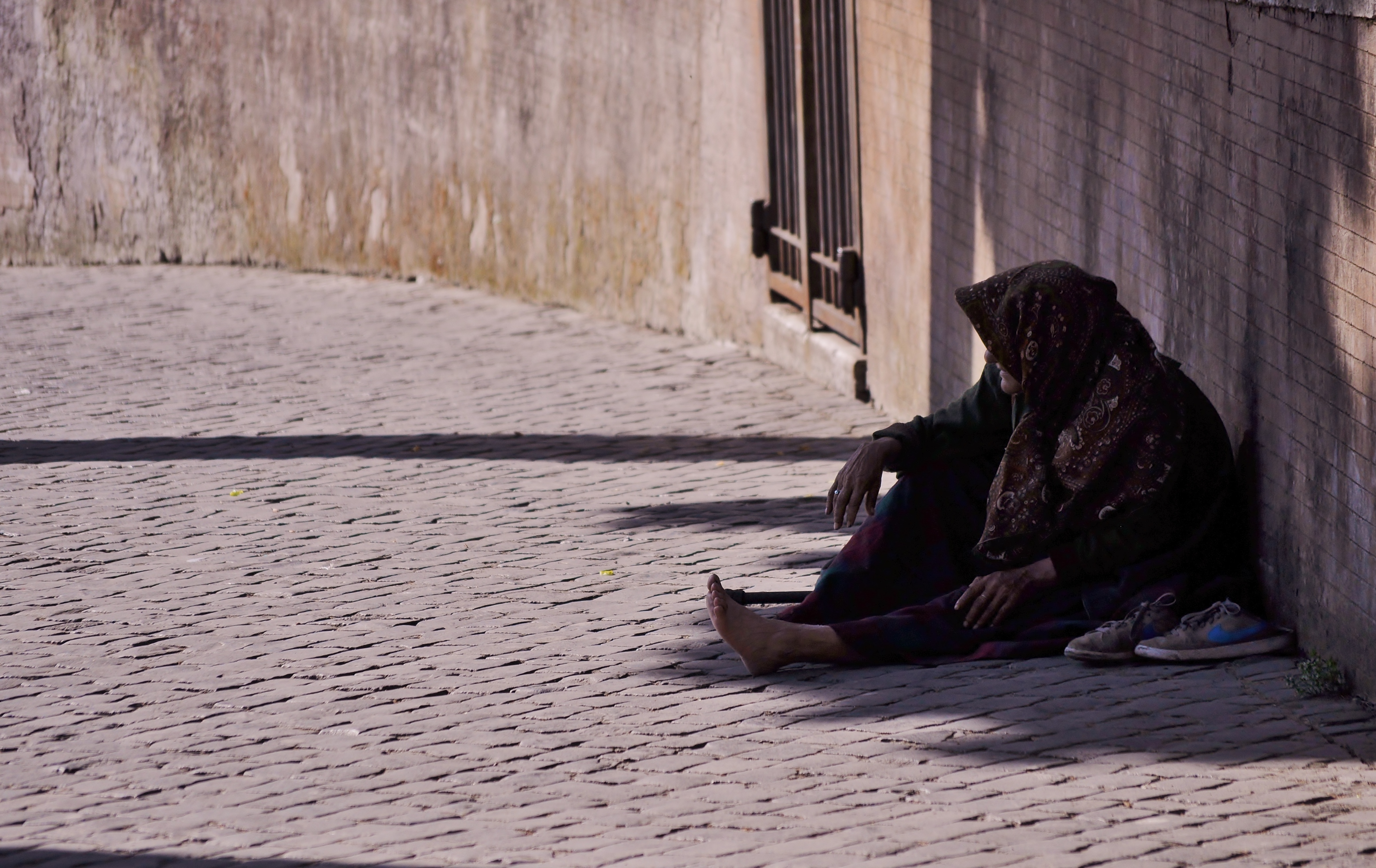Amy and Ariana are friends of mine. They both struggle with mental illness but are different in one major way: Amy doesn’t have a home while Ariana does.
Amy I met while working at a coffee shop in Kansas. I’ll never forget our first meeting. She looked at me with tears in her eyes as she confided that she had no bed to lie in that night. Her long, brown-gray hair was pulled in a taut ponytail. She cried quickly and then not at all.
Mental illness and homelessness are inextricably intertwined.
Ari I met hanging out at a coffee shop in Chicago. Her red locks hung free from her head, whipping in the wind. She was cool and calm about divulging details of her personal struggle. Ari has heaps of familial support. Her parents are well educated, and when she had what she describes as “a complete mental meltdown,” her mother and father were ready to help her navigate the complicated mental health system—a system so entrenched in bureaucracy that just getting on Medicaid involves filling out and faxing almost the amount of paper it takes to compose a tree.
In the photo: Medication for mental illness remains at a premium, restricted in accessibility especially for those who are financially insecure.
A 2008 survey run by the U.S. Conference of Mayors found mental illness to be the third major cause of homelessness for single adults in over 25 major cities. On any given night, 564,708 people live without a home in the U.S. This number discounts the countless number of people lucky enough to surf couches, who are also, by the way, homeless.
This is where the numbers—not the people—get crazy. Of the 564,708 homeless citizens of the United States of America, 141,000 have manic-depressive illness or schizophrenia. That’s roughly 25% of the homeless community that struggles with severe mental illness. Only 6% of the entire American populace struggles with severe mental illness. The difference in numbers is staggering and indicative of a larger problem in our mental health system, where people suffering with mental illness are left to care for themselves on the streets. In Illinois, Lutheran Social Services, the largest social service agency in the state, announced that it would close 30 programs and cut 750 positions. In Kansas where I grew up, the situation is abysmally worse. 97 million dollars in budget cuts were made to higher education and, importantly for Amy, Medicaid.
Related article: “RUNNING WITH MINDFULNESS: INTERVIEW WITH TIMOTHY OLSON“
What is going on with our mental health system that this many people who need help are left to fend for themselves on the streets? Hospital beds for the mentally ill have decreased steadily since the 1970’s. Along with the decrease, there’s been a direct correlation with an increase in homelessness and crime. Getting rid of those hospital beds saved the failing system money in the short-term but cost taxpayers thousands of dollars in the long-term. A study from the University of Pennsylvania found that being New York City homeless costs a NYC taxpayer an average of $40,500 dollars per year for emergency room, hospital, shelter and prison stays. That number is astronomical for a city of 8.4 million.
Being homeless worsens already existing mental health issues due to the dangerous realities of homelessness. One-third of homeless women in Baltimore have been raped. Some of those women have reported being raped upwards of 17 times. These aren’t just statistics. These are the violent realities of life lived on the street. And being mentally ill only makes you more vulnerable.
For a full mindmap containing additional related articles and photos, visit #MentalHealthforAll .
There’s the story of Albert Blanchard who started out being diagnosed with schizophrenia. His paranoia was such that he wouldn’t stay in a hospital due to thinking that the people there were trying to hurt him. So instead of opting for treatment, he lived on a slab of concrete. While living on his own, a young man named Eric Erwin set him on fire and then was let out on probation. Albert has since developed PTSD and has terrifying dreams about what happened.
Amy doesn’t do drugs, she doesn’t drink, she does smoke cigarettes (perhaps to relieve stress as she is homeless). She’s a normal person who is going through a rough time. But when she went to CVS to get her medication, it wasn’t pre-authorized yet. Amy didn’t know she just had to wait for the doctor to send the order in, all she heard was that seven anti-psychotic pills were going to cost her $300 she didn’t have, so she walked away from the counter and went to the shelter with nothing to abate her symptoms.
There is only one homeless shelter in Lawrence, Kansas. And it is located off of the highway. The shelter used to be located in the much easier-to-access downtown location but was moved due to residents being put off by members of the homeless community hanging out in their shopping and eating areas. Amy makes her trip either by a bus she can barely afford, or by foot. By foot the trip is long and dangerous. She gets blisters and calluses. In the winter months, there are rarely enough beds for her to get a spot (the shelter only serves 125 people at a time). On these over-full nights, she has to sleep slumped over in a makeshift tent under a bridge. When she does get a spot to sleep, she is mixed in with a variety of people—some of them are violent. This is not a place to calmly rest your head. Much of the homeless community in Lawrence opts to sleep during the day in the much better funded and impressive looking public library and stay awake and vigilant at night. This makes their search for work all the more difficult.
The biggest difference between Ari and Amy is family support and education. Ari went with her family to the CVS. Her mother helped her as she waited for pills in line. She had help navigating the mess of paperwork and phone calls that awaited her after her hospital stay.
In the photo: Freedom is a privilege—Ari wears her hair down, and Amy wears her hair up
Ari wears her hair down, and Amy wears her hair up. This seems like a small distinction but maybe it is indicative of something more—because Ari has the benefit of being treated. She has the privilege of freedom as she deals with her mental illness. She has the safety of a home and family. Her hair flows freely. Amy has none of this. Her brown-gray hair will always be pulled taut away from her face as long as she is in danger, as long as she is trapped not only by mental illness but also by the truly horrific nature of homelessness. If we can speak freely about mental illness in conversation then perhaps we can do a little part in helping people like Amy remain off the streets.
Recommended reading: “CONGRESS IS ON THE VERGE OF PASSING A LANDMARK MENTAL HEALTH BILL”












